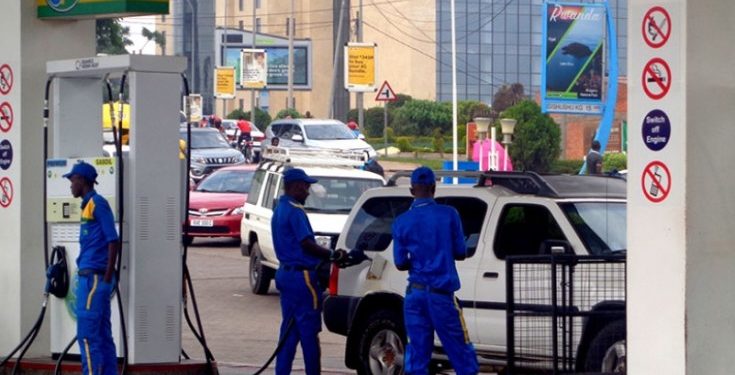Rwanda has increased its fuel prices, reflecting the little impact the bi-monthly government subsidy has had.
The latest prices, effective Monday, will see a litre of petrol retail at Rwf1,609 ($ 1.54), up from Rwf1,460 ($1.39) two months ago. A litre of diesel will sell at Rwf1,607 ($1.53), an increase from Rwf1,503 ($1.43).
The next fuel price review will be in October.
The Minister of Infrastructure, Dr Ernest Nsabimana, attributed the rising costs to the Russia-Ukraine war. He said since the war began early this year, oil prices have more than doubled. In February, a barrel of crude oil was at $0.57; by the end of July, it had hit $0.97.
Dr Nsabimana said he expects the prices to rise even higher in the next few months if the China-Taiwan situation escalates.
The price increases pile more pressure on households and motorists, given that diesel is a key determinant of the basket of goods and services used to measure inflation.
According to the National Institute of Statistics, Rwanda’s general Producer Price Index, the monthly measure of change in the prices received by domestic producers, recorded an annual increase of 14.6 per cent in June. Local prices increased by 15.3 per cent, while export prices increased by 12.8 per cent.
Producers of services such as electricity and manufactured goods usually factor in the higher cost of petroleum.
The government has invested Rwf10 billion ($10.1 million) to salvage the prices that would have increased to Rwf1,757 ($1.68) per litre of diesel and Rwf1,767 ($1.69) for a litre of petrol. Since July, the government has invested $23 million in fuel subsidies.
Rwanda introduced fuel subsidies in August 2021 with Rwf15 billion ($14 million). Prices at the time had increased to Rwf1,172 ($1.12) for petrol and Rwf1,122 ($1.07) for diesel.
Read also; Trade Between Uganda & Rwanda Continues to Suffer Despite Border Openings.




